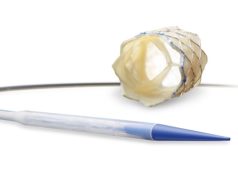
A study presented at the virtual Society for Cardiovascular Angiography and Interventions (SCAI) 2020 Scientific Sessions (14–16 May, Eastern Time) has found that a non-fasting strategy prior to cardiac catheterisation is non-inferior to a traditional fasting strategy in terms of adverse outcomes (such as aspiration pneumonia). CHOW NOW is the first study with a large number of randomised patients to evaluate the safety of letting them eat prior to a non-emergent cardiac catheterisation.
Abhishek Mishra (Vidant Heart & Vascular Institute, Greenville, USA) and colleagues randomised 599 patients (outpatients: n=305, inpatients: n=294) to a non-fasting strategy or a fasting strategy. Those in the fasting group were nothing by mouth after midnight, prior to the procedure, but could have clear liquids up to two hours before the procedure; those in the non-fasting group had no restriction on oral intake irrespective of time of the cardiac catheterisation. The primary outcomes included a composite of contrast induced nephropathy, peri-procedural hypotension, aspiration pneumonia, nausea/vomiting, hypoglycaemia and hyperglycaemia. Secondary outcomes included assessment of patient satisfaction, in-patient mortality and total cost of index hospitalization.
Compared to the fasting group (n=306), the non-fasting group (n=293) had similar rates of primary outcome (9.8% versus 11.3% respectively; p=0.65) and was non-inferior to the fasting group at a threshold of 0.059. There was no significant difference in incidence of contrast induced nephropathy (1.6% versus 2.4%), peri-procedural hypotension (1.6% versus 2.0%), aspiration pneumonia (none vs. 0.7%), nausea/vomiting (3.6% versus 5.1%), hyperglycemia (3.3% versus 1.4%), or hypoglycemia (1.0% in both). More than 99% patients of both groups were discharged alive. There was no significant difference with regards to the patient satisfaction score and 30-day mortality. [fasting vs non-fasting: 4.38±0.90 versus 4.49±0.77 and 1.3% versus 2.4% respectively, p=ns for both]. Cost of hospitalisation was also similar in both groups.
Mishra commented: “This study really challenges one of the established practices of having the patients fast prior to a non-emergent cardiac catheterisation procedure. This practice has been in place for [several] decades without having any actual evidence to support it. With advancement of procedural technology and moderate conscious sedation, the perceived risk of complications has significantly reduced.”
He added: “We hope that the findings of this study help make the cardiac catherisation procedure more ‘patient centred’. The current fasting practice does result in more discomfort and frustration for the patients who may sometimes end up waiting several hours longer than the planned six hours of fasting. Imagine a diabetic patient who is fasting for a procedure overnight, only to realise that there has been an emergent procedure scheduled prior to him at the last minute and he may end up having the procedure later in the day, when he may already be fasting for nearly 14+ hours. Also, patient contentedness being a focus of healthcare in current practice, this study is an important step to maximise patient comfort in a safe manner.”
Mishra stated that fasting practices currently differ based on the institutional policy and hopes that the study will provide evidence which can be incorporated into future professional society guidelines.












